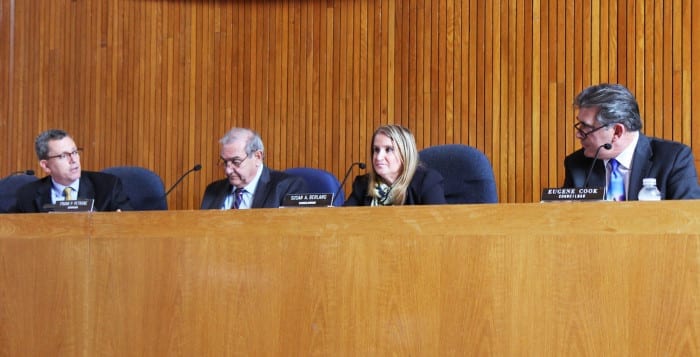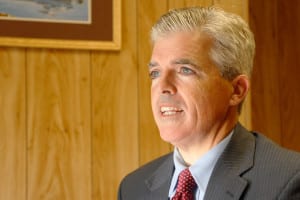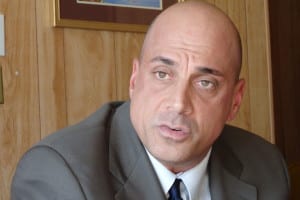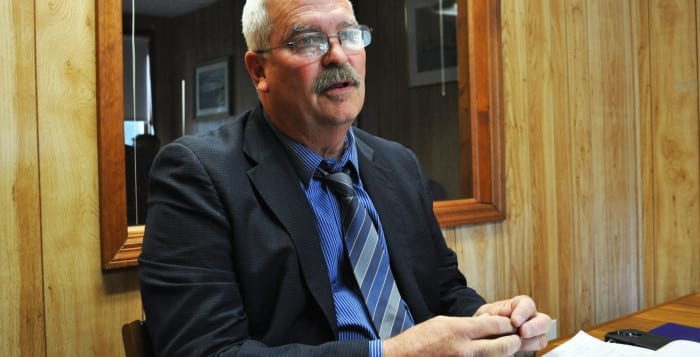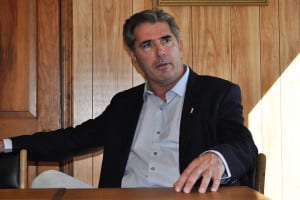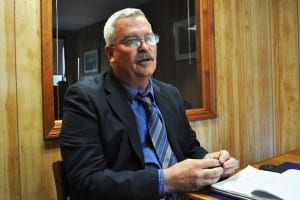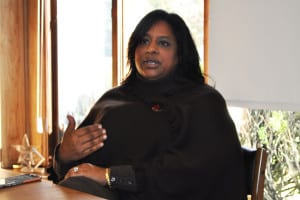The Huntington Town Council approved its $188.7 million budget on Thursday, but not without a heated discussion between Councilman Gene Cook (I) and Councilman Mark Cuthbertson (D) over Cook’s vote.
The budget passed with a 4-1 vote, with Cook as the lone opposition.
The budget included a 0.2 percent decrease in overall spending, a 1.3 percent increase in property tax levy and a $15 million capital budget, the town said in a press release.
This budget will amount to a $29 increase for the average homeowner.
The $15 million capital budget also focused on improvements to the town’s infrastructure, such as rehabilitation of various plants and pump stations in the Dix Hills Water District and headwork improvements in the Huntington Sewer District. Funding was included for road rehabilitation, drainage infrastructure and paving.
The town budgeted an additional $1.9 million for the town’s highway department, due to last year’s severe winter. That increase was offset by “little-to-no” increases in the other major town funds, and decreased spending in some of the special districts, the town said in a press release.
“This was a difficult budget to put together, given the limitations of the tax cap and increases in costs, such as health insurance,” Supervisor Frank Petrone (D) said in a statement. “But I am pleased that we were able to maintain services and programs our residents want and have come to expect.”
Cook said he was not in support of the budget.
“We, as taxpayers, will be given $15 million worth of bonding,” Cook said at the meeting, just before the budget was approved. “I find that horrendous. I think there are better ways of doing this, so I will be voting no.”
Cuthbertson said that this has become an annual right of passage for Cook.
“I have taken to calling this ‘having your cook and eating it too,’” Cuthbertson said at the meeting. “For the fourth year in a row now, Councilman Cook has offered no advice on the budget and no budget amendment. He simply votes no.”
Cook countered, asking Cuthbertson if he felt better after making that comment and Cuthbertson said he did, because he had stated his case.
“Tell us what you would do instead,” Cuthbertson said.
Cook, who just finished months of campaigning for a successful re-election bid, has said at many events that he feels there is a lot of mismanagement and misappropriation of funds within the town budget. He said he wants to see more consolidation to save taxpayer dollars.
“I want to start each department with a $0 budget, and have them tell us why they need money,” Cook said. “We need to have the directors of these departments be more responsible.”
Cuthbertson questioned if that was possible.
“I don’t see the building department starting off with a $0 budget,” he said. According to Cuthbertson, budgets start with requests from departmental heads.
“We scrutinize those requests very carefully,” Cuthbertson said in a phone interview on Friday. “But at the end of the day, we have to deliver services.”
Cuthbertson said that every councilmember has an obligation to offer amendments if they disagree with the budget.
“But he never does that; he never offers suggestions,” he said of Cook.
At the meeting, Cook suggested that he might present his own budget next year.
“I think it’s about time,” Cook said. “But the problem is, nobody listens to me.”

